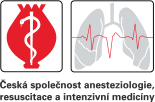Anest. intenziv. Med. 2004;15(1):17-20
Importance of Diuresis for Diagnosis of Acute Renal Failure in Patients in Long-term Intensive CareArticles
- ARK FN U svaté Anny v Brně, přednosta prof. MUDr. Pavel Ševčík, CSc.
Objective:
To determine if inclusion of urine output (UO) into the definition of acute renal failure (ARF) increases its incidencein long-term ICU patients.
Design: Retrospective analysis of patients medical records.Setting: Department of Anaesthesiology and Intensive Care, St. Anna's University Hospital, Brno, Czech Republic.
Material and Methods: Analysis of medical records of long-term (> 3 days) ICU patients hospitalised in 2000. Urine output,urea and creatinine during ICU stay were reviewed every day, and ARF diagnosed according to criteria recently proposed[1]. Furosemide administration was also recorded. Values are given as means ± SD (range).
Results: 90 out of 189 patients hospitalised in 2000 stayed in the ICU more than 3 days. Eighty four medical records wereavailable for analysis - mean age 59 (16-85 years), APACHE II on admission 25.4 ± 7.7. Altogether 1196 ICU days wereanalysed. Seven patients required renal replacement therapies for 39 days (i.e. severe acute renal failure syndrome - ARFS).Out of remaining 1157 ICU days, the complete data set (i.e.UO,urea,creatinine)wasavailable in 340 cases because creatininewas not performed on daily basis. Renal metabolite levels led to ARF diagnosis in 62 ICU days (18.2%). Inclusion of UOincreased the number of ARF ICU days by 14 (altogether 22.4%). In 2 ICU days more severe degree of ARF was diagnosedaccording to UO compared to metabolites criteria. In all but 1 patient low UO was present when no furosemide was given.When all 1157 ICU days were analysed according to UO and urea levels, UO-based ARF was found in 97 ICU days (8.4%).In 40 of these cases patients had normal urea level. When urea was the only parameter used for ARF diagnosis, 550 ICUdays (47.5%) classified as ARF ICU days.
Conclusion: In long term ICU patients who are not given furosemide inclusion of low urine output into ARF definition leadsto increase of its incidence.
Keywords: acute renal failure; urine output; intensive care
Published: February 1, 2004 Show citation




